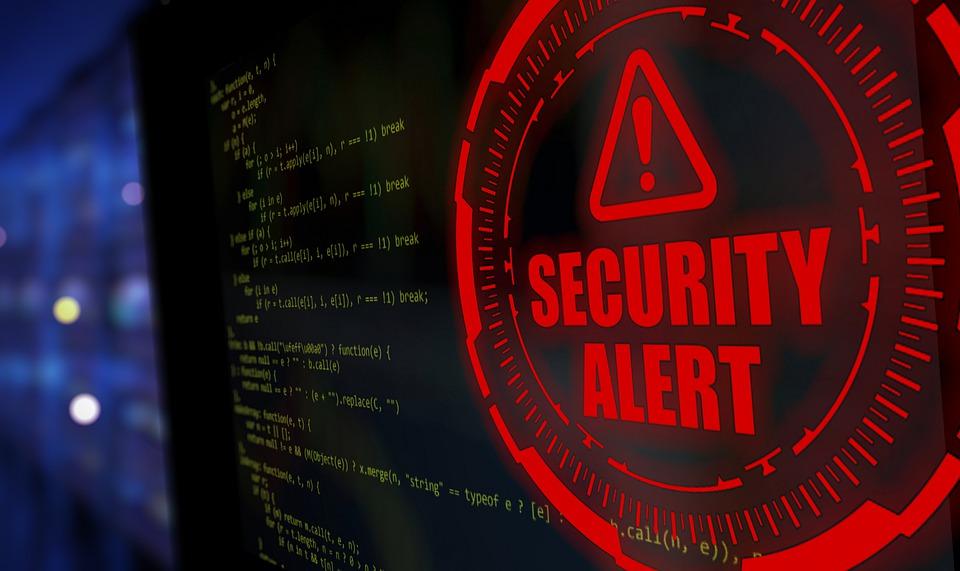
8-Cyber Security Certifications - Courses You Can Learn Today
8-Cyber Security Certifications: Courses You Can Learn Today
Leaders in the IT industry believe that cyber security professionals with certification add value to an organization. Most companies prefer employees who can validate their skills and expertise with relevant certifications and courses.
This is because cyber security incidents can cause damage to a company and must be taken seriously. Professionals that have a certification in a specific field in cyber security prove their ability to handle such security threats.
While having a bachelor’s degree helps you gain foundational knowledge, certifications provide essential hands-on skills to deal with cybercrime. Cyber security professionals with certification can handle cyber threats and provide solutions.
For example, a professional can analyze IT systems and identify vulnerabilities like lack of data encryption. They can further identify and recommend practical solutions after conducting research.
These professionals can help you identify effective cyber security solutions such as Blazing SEO proxy. Proxies are effective tools to prevent different threats we are facing today. And only certified professionals can identify which solutions are right for you.
Below are some of the cyber security certifications that are valuable in the cyber security industry.
1. Certified Information Systems Security Professional (CISSP)
CISSP ranks as one of the most valued certifications in cyber security. The demand for a CISSP certification in the workforce is high, making it one of the most sought-after courses.
This certification shows your capability in implementing cyber security through designing and monitoring systems. The areas covered in CISSP include access control, disaster recovery, physical security, and cryptography.
To qualify for a CISSP exam, you need 5 or more years of work experience in cyber security. A professional that has a bachelor’s degree in computer science and one year of work experience can also qualify for the exam.
CISSP is an advanced certification for professionals who are looking for positions like:
Chief Information Security Officer (CISO)
This is a top executive position in cyber security that ensures the successful implementation of a company’s IT systems. Some of the roles of the position holder include conducting security awareness through training. These professionals also secure and develop communication and business practices, and compliance.
Security Administrators
Security administrators provide expert security advice to businesses. They ensure systems are protected from unauthorized users. A CISO certification prepares you for this role.
2. Certified Information System Audit (CISA)

CISA is another highly-ranked certification. This is a certification course for entry-level and mid-level IT professionals who want to advance their careers. CISA is a well-recognized certification in auditing and cyber security.
It will help you demonstrate your ability to assess various security vulnerabilities, design controls, implement them, and produce compliance reports. To take a CISA exam, you need 5 years of professional experience in IS audits or security networking. Professionals with a bachelor’s degree and 1 or 2 years of work experience can also take the exam.
CISA is the best certification course for professionals who want to advance their careers and are looking for positions like:
IT Audit Manager
An IT audit manager leads a team of IT auditors and ensures the team adheres to the auditing standards. The position holder also evaluates an organization’s IT infrastructure and establishes controls to reduce risk.
IT Security Engineer
A certification in CISA can qualify you for a position as an IT Security Engineer. The position holder is responsible for overseeing project planning and implementation of technology infrastructure.
3. Certified Information Security Manager (CISM)
A CISM certification validates your abilities in managing information security. This includes risk and incident management of IT infrastructure.
The CISM course will help you understand internal security. The topics you will learn include management of designs, administration, and assessment of an organization’s IT security.
To qualify for a CISM exam, you need a minimum of 5 years of professional experience in information systems audit, security, or control. You can take the exam if you have a master’s or a bachelor’s degree in IT with relevant work experience.
This certification can prepare you for roles like:
Information Risk Consultant
Professionals in this position support technical staff in projects like system development. They determine system specifications, quality assurance, and process improvement with technical staff and customers. They have strong problem-solving skills, and they lead project activities.
Director Information Security
Professionals in this position oversee all the aspects of IT security in an organization. This is a senior position that manages IT security programs and supervises IT security departments.
4. Systems Security Certified Practitioner (SSCP)
SSCP certification validates your ability to implement and monitor IT infrastructure according to security policies. Professionals with hands-on experience in IT security can benefit from this course.
Some of the areas you will cover include security administration, cryptography, access control, and incidence response. Requirements for the SSCP exam are one-year relevant work experience.
Professionals with a bachelor’s or master’s degree in cyber security can also take the exam.
SSCP certification prepares you for positions like:
Network Security Engineer
A network security engineer is in charge of protecting an organization’s IT infrastructure from threats. They are required to identify malware, bugs, or hacking attempts and provide solutions to avoid such threats.
Database Administrator
A DBA manages and secures data. These professionals build high-quality database systems that enable information distribution to the right users.
5. CompTIA Advanced Security Practitioner (CASP+)
CASP+ certification enables professionals with hands-on cyber security experience to advance their skills. Areas you will cover in this course include enterprise security, risk analysis, virtual technology, cloud security, and cryptography.
The requirement for taking a CASP+ exam is 10 years of IT administration experience. This should include 5 years of hands-on experience in cyber security.
A CASP+ certification qualifies you for the following career opportunities:
Security Architecture
A security architecture maintains the security of an organization’s IT system. They try to understand the mind of a hacker and anticipate their move before an attack. A security architecture is responsible for researching, planning, and designing security for IT systems.
Technical Lead Analyst
A professional in this position oversees a technical IT security team. They lead teams in developing software or troubleshooting technical issues. Other responsibilities include supervising modifications in systems, analyzing the needs of users, and hiring technical staff.
6. Certified Incident Handler (GCIH)
A certification in GCIH proves your expertise in detecting and resolving IT security incidents in an organization. It shows that you have the required skills and can use the right tools to handle cyber security issues.
Some of the areas you will cover in this course include Investigating computer crime, incident handling, and hacker exploits. Some of the tools you will learn are Nmap’s, Metasploit, Netcat, and Nessus.
Requirements for taking an exam in GCIH are having a good understanding of networking protocols, windows and command line, and security principles.
A GCIH course prepares you for positions such as:
Incident Handler
An incident handler is trained and capable of handling different security incidences when they occur. They perform risk assessments and coordinate responses to incidences.
System Administrator

A GCIH certification can add to the knowledge of system administrators and enable them to perform their duties efficiently. This includes managing an organization’s infrastructure and troubleshooting.
7. Offensive Security Certified Professional (OSCP)
OSCP certification is a leader in penetration testing. It provides hands-on training in penetration techniques and tools.
The course covers wireless security, like packet interaction. Other topics include advanced penetration, security of wireless devices, and breaching defenses.
Professionals taking the OSCP exam need to have TCP/IP networking knowledge, experience in Linux administration and windows, and knowledge in python scripting.
The certification prepares you for positions such as:
Penetration Tester
Penetration testers are professionals who help organizations identify system vulnerabilities and solve security issues. They perform audits and correct weaknesses in the system.
Threat Researcher
Threat researchers identify and analyze potential threats. They are proactive and provide updates on vulnerabilities to organization leaders.
8. Security Essentials Certification (GSEC)
This is an entry-level credential for IT professionals. GSEC certification proves your skills in performing IT security tasks. Areas you will cover in the course include active defense, cryptography, networking security, and cloud security.
Requirements for taking a GSEC exam include a background in Information Technology.
The certification prepares you for positions like:
IT Security Manager
This is a position that leads an IT security team in planning and implementing security programs. IT security managers identify threats and predict attacks that could happen in the future.
Computer Forensic Analyst
Professionals use their IT security skills and knowledge to help crime investigations and identify cyber security incidents. They recover encrypted data or deleted information that could be used to solve a case.
Key Takeaway
A cyber security certification proves that you have the expertise needed to hold a particular position. Certifications validate your abilities to provide cyber security solutions that employers need and help to advance your career.
Before selecting a particular course, consider the level of your experience. This will help you choose a certification that will improve your skillset.
Identify your goal and choose a certification that will enable you to offer value and achieve your goals. For example, if you want to advance your career to a managerial position, choose a certification to help you achieve that goal.

